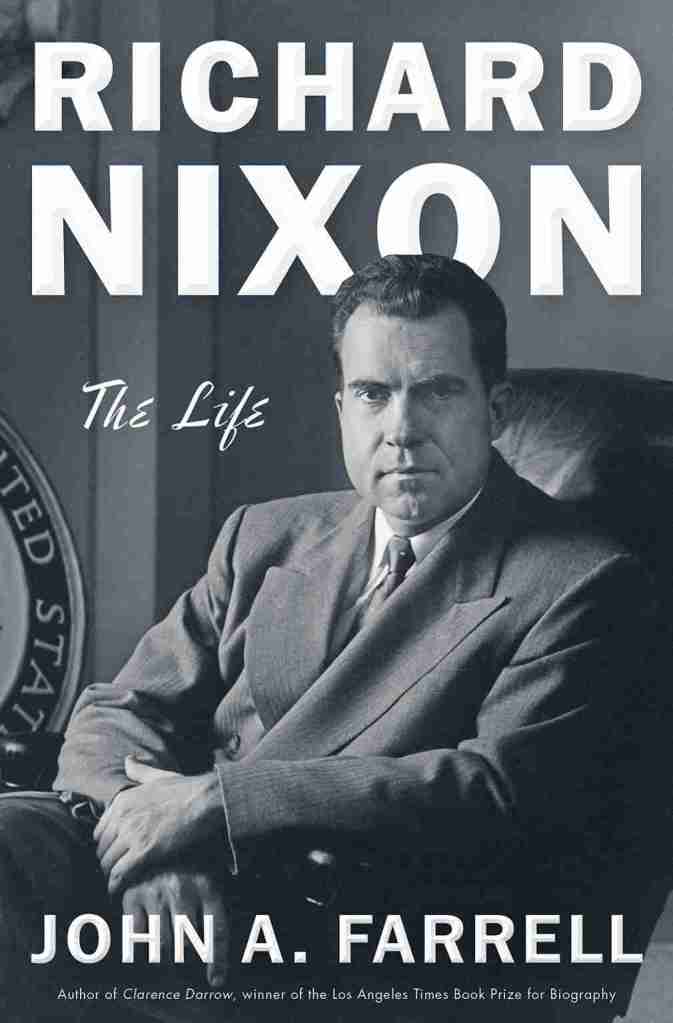
My quest to read (at least) one biography per President continues with Richard Nixon, the thirty-seventh President of the United States. I ended up checking out my selection process (reading reviews online and utilizing and this website- My Journey Through the Best Presidential Biographies) and ultimately reading Richard Nixon: The Life by John A. Farrell.
Here, I’ll offer my thoughts on the biography and Nixon and proceed to present my official ranking for the DEFINITIVE RANKING OF PRESIDENTS OF THE UNITED STATES!!!!!! The full list of the rankings with all the Presidents as well as comments on their careers, updated as I read through this list, may be found here.
Richard Nixon, #37
Nixon was born into a family of hard workers who made their living working at the clan’s father’s grocery store. He eventually left to practice law, and eventually ended up in Washington, D.C. He decided to serve in World War II in the Navy, and as the war was ending it was suggested he could make a mark as a politician. He rose rapidly through a number of campaigns largely as a bruising debater and ruthless competitor. Even with these early contests, one can find notes from Nixon about the campaign to “plant spies” in oppositions’ camps. He rode the anti-communist train to national popularity, but didn’t hesitate to throw others under the bus when the Age of McCarthyism came to a crashing halt.
When he narrowly lost the 1960 Presidential Election and also lost his attempt to win Governor of California, he decided to quit politics, only to run for President again and win in 1968. In part, his campaign promised to win Vietnam or bring an “honorable end” to the war there. However, he quickly became embroiled in a mesh of attempts to save face for the United States while simultaneously embracing strategies that would cause additional losses and atrocities. Nixon himself admitted to the secretive bombing of Vietcong assets in Cambodia led to the destructive genocide in Cambodia.
One might think that Nixon was a total disaster on foreign policy, but later in his Presidency, he managed to turn China not into an ally but at least into a kind of buffer between the United States and the Soviet Union. The complexity of this maneuvering involved other countries as well, like India, and basically involved Nixon and China saber rattling while also playing major powers against minor powers to try to forestall a potential outbreak of another world war. It was a masterful, complicated move, and shows a global move with foreign policy that some give Nixon quite a bit of credit for in that arena.
Nixon also had a better Civil Rights record than many previous Presidents, as he nationalized the Voting Rights Act and also pushed farther for integration of schools and oversaw the first moves for affirmative action at the Federal level. While it’s easy to find Nixon’s failings on Civil Rights, the fact remains that for contemporaries, he was seen as a major step forward, including for people like Martin Luther King, Jr., who said he was surprised by Nixon’s moves as a Senator (or VP, my notes failed me here).
Watergate will never be forgotten in the history of the United States, and while it’s unclear Nixon orchestrated any of it, his willingness to dive in to cover it up for political expediency should ring a warning bell to us all today. Honestly, it is amazing to see how this derailed Nixon’s Presidency when much, much worse things have been done by more recent candidates and basically just ignored.
Nixon’s Presidency continues to be both a historical curiosity and a lesson for us today. Throughout his time, he mostly thought of himself as priority number 1, whether it was attempting to save face in Vietnam or covering up events with Watergate. One would hope that Nixon’s life could serve as a warning to Americans to avoid the same kind of “me first” attitude covered with a veneer of love of country. While Nixon’s Presidency wasn’t an entire disaster, he leaves behind a mixed legacy that looks different depending which light one examines it under. Richard Nixon: The Life by Farrell is an excellent biography that ably navigates the life and decisions of this fascinating person.
All Amazon Links are Affiliates
Richard Nixon’s Original Ranking in THE DEFINITIVE RANKING OF PRESIDENTS OF THE UNITED STATES (Full and Updated List Here)
(37th President – Original Ranking #27)- Nixon was a devious, calculating man throughout his political career. While he ran on a ticket basically trying to promise to bring an “honorable end” to the war in Vietnam, his actions broadened the war, cost thousands upon thousands of lives, and touched off a legacy of genocide in neighboring Cambodia. Watergate will never be forgotten in the history of the United States, and while it’s unclear he orchestrated any of it, his willingness to dive in to cover it up for political expediency should ring a warning bell to us all today. All of that said, he also had some foreign policy successes, such as his managing relations with China into a more peaceful direction to help control the Soviet Union. He also had a better record on Civil Rights than most know about. Overall, his Presidency was a mixed bag that deserves deep consideration.
Links
J.W. Wartick- Always Have a Reason– Check out my “main site” which talks about philosophy of religion, theology, and Christian apologetics (among other random topics). I love science fiction so that comes up integrated with theology fairly frequently as well. I’d love to have you follow there, too!
Be sure to follow me on Twitter for discussion of posts, links to other pages of interest, random talk about theology/philosophy/apologetics/movies/scifi/sports and more!
SDG.
